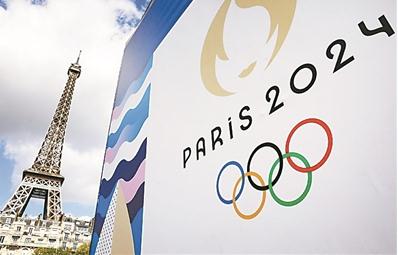The 33rd Summer Olympic Games opened grandly in Paris, France. On July 26, the world's attention was focused on this romantic city to witness the glorious moment of this sporting event. Paris, a city with a long history and rich culture, has been revitalized by the Olympic Games and has become the focus of global discussion. In this sports feast, a particularly eye-catching element is the rapid rise of artificial intelligence (AI) technology in recent years.
The widespread application of AI technology has brought unprecedented changes to sports competition. From training grounds to arenas, artificial intelligence is everywhere, and it is profoundly affecting every aspect of sports in an innovative way. Taking the Chinese national basketball team as an example, the R&D team cleverly integrated AI technology into basketball and developed a sports performance analysis platform. By building a high-precision three-dimensional model of the venue and advanced motion capture algorithms, the platform can analyze the status of athletes and the movement trajectory of basketball in real time, providing valuable data support for the coaching team, thereby assisting in optimizing training strategies and effectively improving the competitive level of athletes.
Not only that, the application of AI technology in competitions has also greatly improved the fairness and accuracy of penalties. It is embedded in the game timing system to ensure the fairness of each game by providing more accurate data. In addition, relevant institutions have also stepped up anti-doping efforts with the help of AI technology, using intelligent algorithms to analyze athletes' biological data to further maintain the purity and fairness of the game.
With the continuous advancement of technology, the application of AI in the field of sports has far exceeded the traditional scope. It not only plays an important role in athlete selection, referee scoring, technical and tactical analysis, but also has a profound impact on the way of game broadcasting and digital communication. AI-driven broadcasting technology can provide viewers with a more personalized and immersive viewing experience, while digital communication allows the Olympic spirit to transcend time and space and reach every heart that loves sports.
It is worth noting that in April this year, the International Olympic Committee issued the Olympic AI Agenda, a programmatic document aimed at leading the global sports field to carry out artificial intelligence programs. As the first Olympic Games after the release of the agenda, the Paris Olympic Games and Paralympic Games have achieved many breakthroughs in using AI technology to assist event security and operations. From intelligent monitoring to crowd management, from event scheduling to information services, the application of AI technology has greatly improved the organizational efficiency of the Olympic Games and the audience's viewing experience.
More importantly, the Paris Olympics also demonstrated how AI technology can promote sustainable development and environmental protection. Through the intelligent energy management system, the Olympic venues have achieved efficient use of energy; and the use of AI for garbage sorting and recycling has effectively reduced the environmental burden during the event. These measures not only reflect the Olympic Games' commitment to environmental protection, but also demonstrate the potential of AI technology in promoting green and sustainable development.
In short, the holding of the 33rd Summer Olympic Games in Paris is not only a grand event of sports competition, but also a concentrated display of the application of artificial intelligence technology. The widespread application of AI technology has not only improved the professionalism and viewing of the event, but also opened up a new path for the innovative development of the sports industry. With the continuous evolution of technology, we have reason to believe that future sports events will become more exciting, fairer and more sustainable due to the deep integration of artificial intelligence. The Paris Olympics, as a milestone in this change, will undoubtedly go down in history as a model of the perfect integration of sports and technology.
Paris Olympics: AI leads new changes in sports


